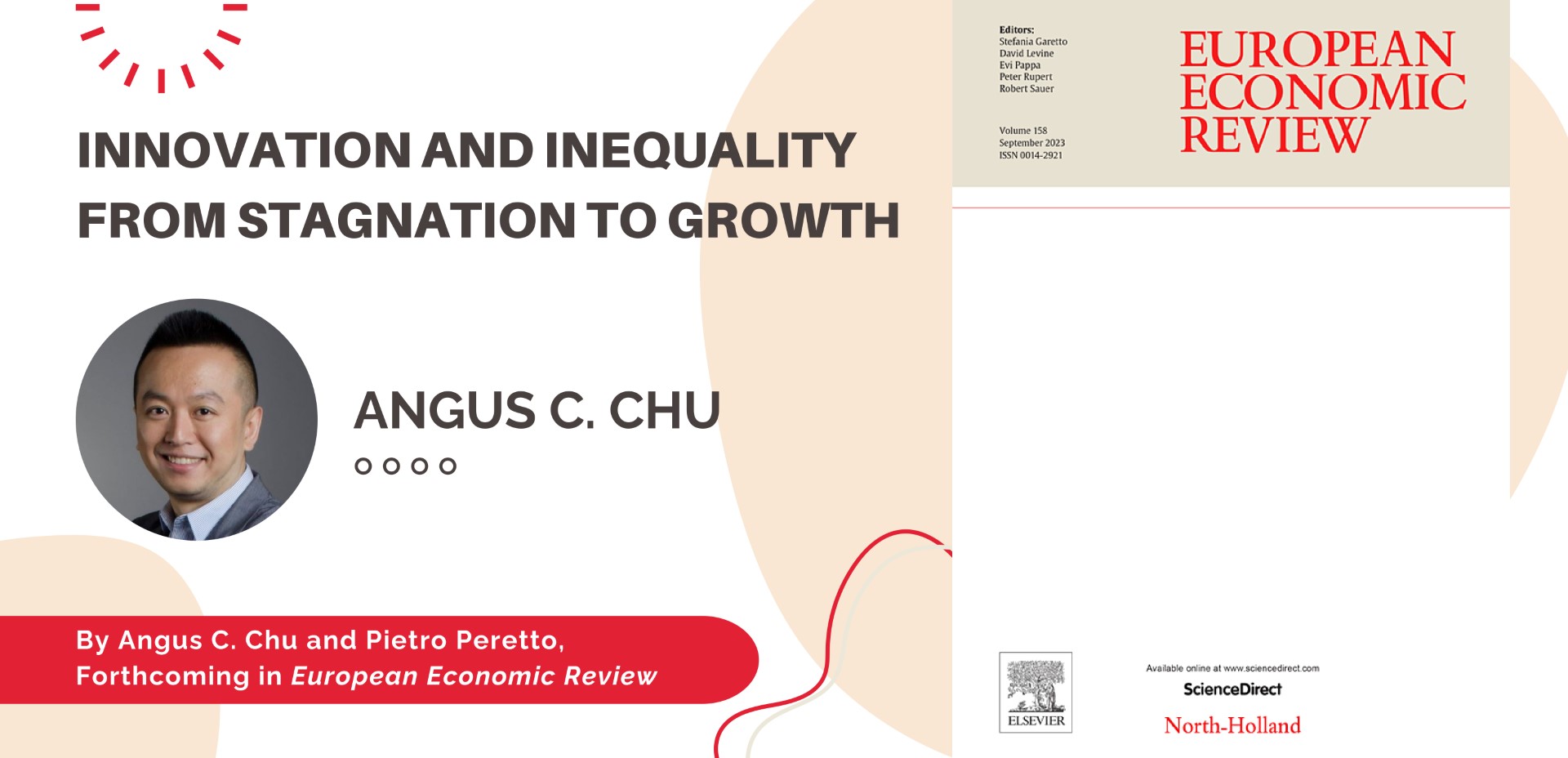
Innovation and Inequality from Stagnation to Growth
By Angus C. Chu and Pietro Peretto
Forthcoming in European Economic Review
Abstract:
This study explores the evolution of income inequality in an economy featuring an endogenous transition from stagnation to growth. We incorporate heterogeneous households in a Schumpeterian model of endogenous takeoff. In the pre-industrial era, the economy is in stagnation, and income inequality is determined by the unequal distribution of land. When the takeoff occurs, the economy experiences innovation and economic growth, and income inequality gradually rises until the economy reaches the steady state. We calibrate the model for a quantitative analysis and compare the simulation results to historical data in the UK. Extending the analysis to allow for endogenous labor supply, we find that endogenous labor supply introduces a channel through which inequality contributes to shaping the transition path of the economy and that households sort themselves into a leisure class that supplies zero labor and the rest of society that supplies labor.

